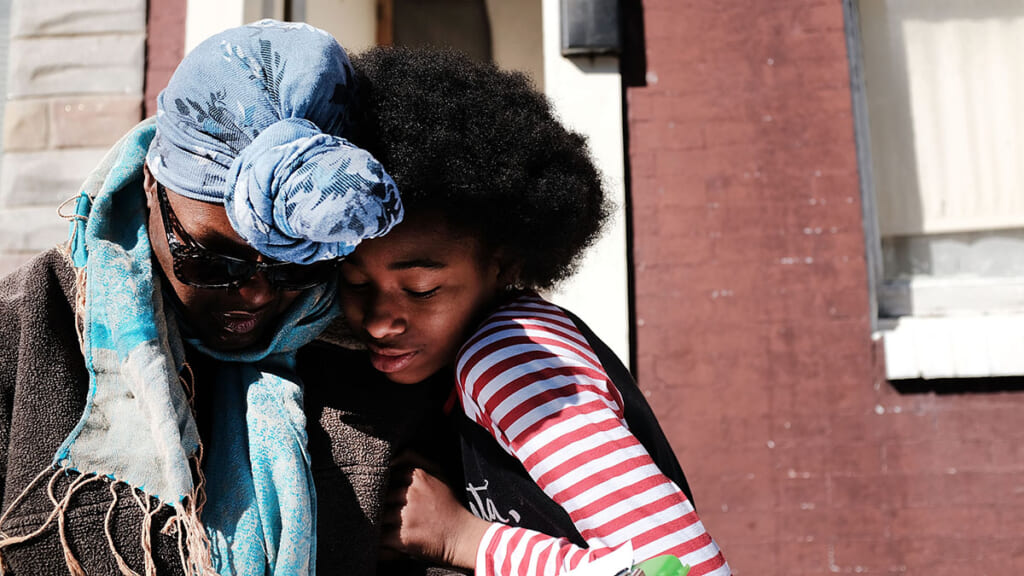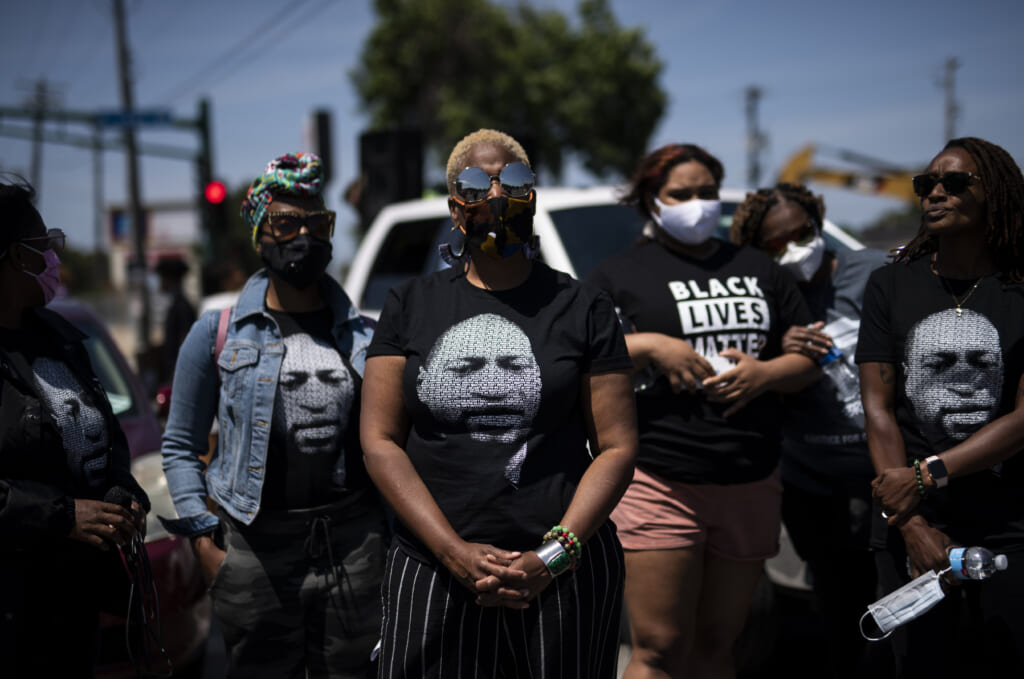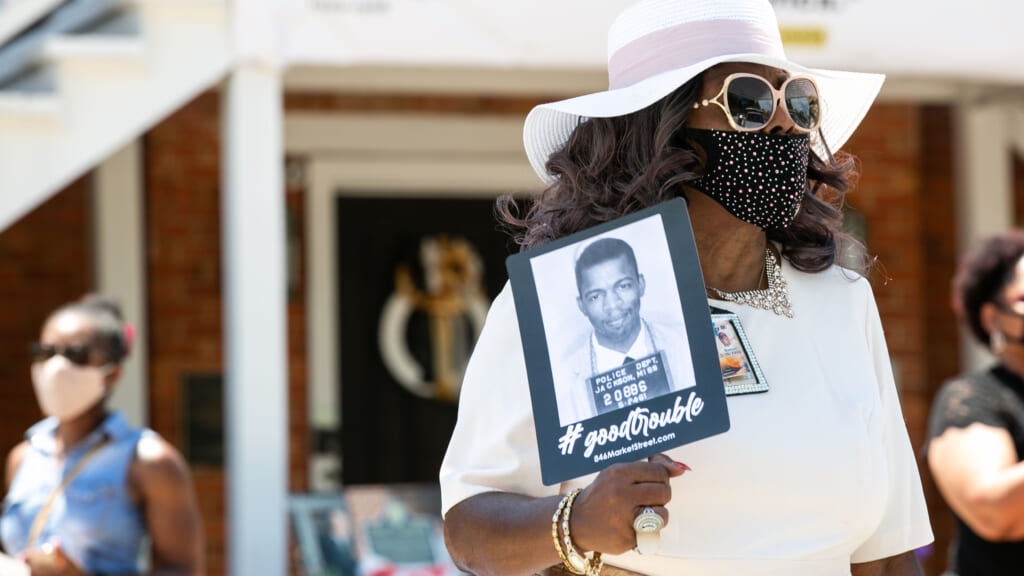Do America’s cities love Black people? Here’s what the data says
OPINION: The Loving Cities Index gives us a snapshot of where the country is on true equality for Black America
Communities are more than just the places we live and work, they are our homes. They are where we meet friends and partners, where we start families and raise children. They can also be places that cause joy and pain. That pain is often targeted, methodical and overwhelmingly impacts Black people.
This pain doesn’t come from the city itself, but it actually is rooted in the lack of love that grows out of the policies and practices created by often misguided elected leaders.
This month, the Schott Foundation for Public Education released the second phase of its Loving Cities Index, which provides a comprehensive look at the systemic racism prevalent across education, health, and economic opportunity in ten of America’s largest cities.
Read More: Cities make deep COVID-19 budget cuts but not to police departments

The Index measures access to supports like healthy food, sustainable wages, health insurance, and mental health care, highlighting the connection between local and county policies that can create healthy living environments.
Unsurprisingly, the Index found significant racial gaps in access to resources across all ten cities, reflecting systemic racism in local, state, and federal policies.
This information comes during a pandemic that is ravaging the country, and taking the greatest toll on people of color. While, at the same time, there is no federal policy in place and an abysmal — honestly frightening — response from the highest office of our federal government.
Based on this administration’s actions and words, we, as Americans, as people of color, as taxpayers and community members, do not matter. That lack of care and love is represented through the inequities in our healthcare system, the recent police murder of George Floyd and Rayshard Brooks, and the weeks of sustained peaceful protest calling for racial equity met with tear gas, violence, and more police brutality.
Read More: Minnesota passes historic police reform bill two months after George Floyd’s death

This country chooses to be racist; from our current healthcare system to the amount of money we spend on policing instead of community support, the neglect and hostility are ubiquitous.
Take Miami for example. With nearly half a million residents, it is the second-largest city in Florida and nearing capacity in its hospitals. There are not enough beds, there are not enough nurses, and people are feeling that lack.
In a world where the hospital cannot manage 1% of the population during a pandemic, how can there be a debate about sending children and teachers back to school without addressing these related support issues?
Read More: Iowa teachers write, send obits to governor in response to schools reopening
At the very least, hospitals should be able to accommodate their own residents, but beyond that, the community should seek to create a loving environment for these residents. For communities that look like ours, witnessing unloving by our cities is an everyday occurrence.
Our children feel it in their under-resourced classrooms. Our neighbors feel it when they have to walk outside their communities because they live in a food desert devoid of public transportation. We all feel it as we watch COVID-19 wreak havoc on an already brittle healthcare system.

The Loving Cities Index is crucial because it provides cities with information to begin conversations and collaborations needed to adopt a comprehensive system of support that provides all children with an equal opportunity to thrive.
If their lives matter, then addressing these systemic gaps must matter. We must pivot to a comprehensive, cross-sector, collaborative approach that shows love and not disregard for our nation’s children. The Index is an extended olive branch to help fix these disparities.
We need to dismantle racism in this country, and we must be systematic in our approach. It starts with who we elect to our local and state offices, as well as who we elect to lead our country. Elections are about contrast, and the contrasts in 2020 are crystal clear.
Read More: Biden says Russians are meddling in 2020 election
Even as our communities are suffering, we must mobilize to ensure that every one of us votes, even in the face of obstacles that almost surely will be put in our way. We are no strangers to obstacles, and yet, in the legacy of Congressman John Lewis, we must persevere.

Systematic change is not going to be easy; it never is. It takes time and perseverance (and maybe a prayer or two) to ensure meaningful progress in creating a more just and equitable society. It begins with loving the people who call it home; that means closing the economic and racial opportunity gaps in areas like housing, healthcare, and community involvement.
There will be no quick fix to our nation’s racial woes, no one-size-fits-all solution to end the centuries of White privilege and heal the wounds left in its wake. These truths should not stop us from voting or engaging in civic processes; they should push us toward electing leaders that we will hold accountable.
Now more than ever, this is when philanthropy, community, and government must all come together to make cities more loving. We must be unremitting and tenacious in our demand for equality.
As Pulitzer Prize-winning journalist Nikole Hannah-Jones said in her foreword to the Loving Cities Index: “Inequality is a choice. It is time for us to make another. We can start here by getting at the root of it all. We can start by committing to build, for the first time in our history, a nation of Loving Cities.”
Have you subscribed to theGrio’s podcast “Dear Culture”? Download our newest episodes now!
The post Do America’s cities love Black people? Here’s what the data says appeared first on TheGrio.
from TheGrio https://ift.tt/30jkElb
No comments: